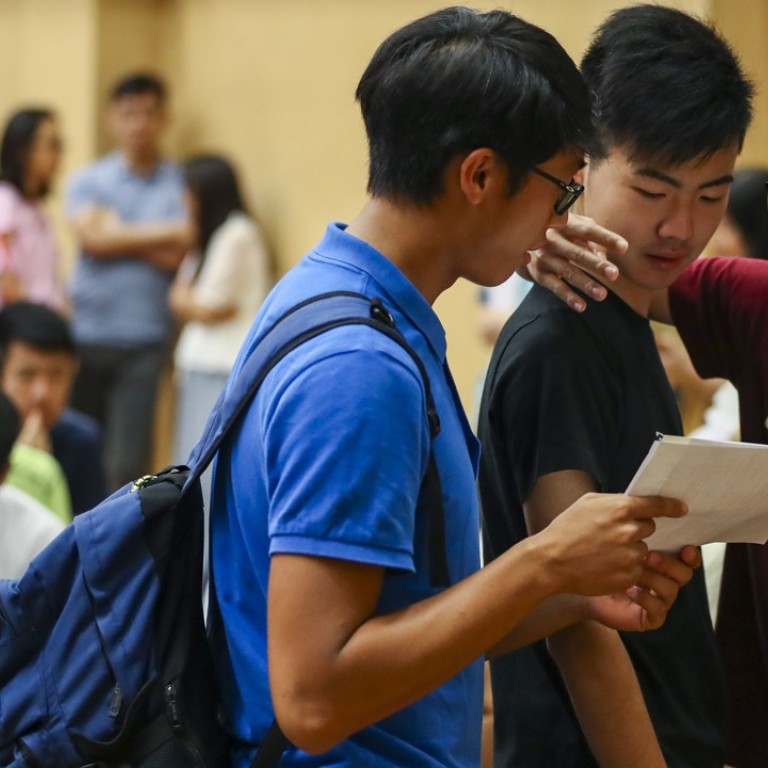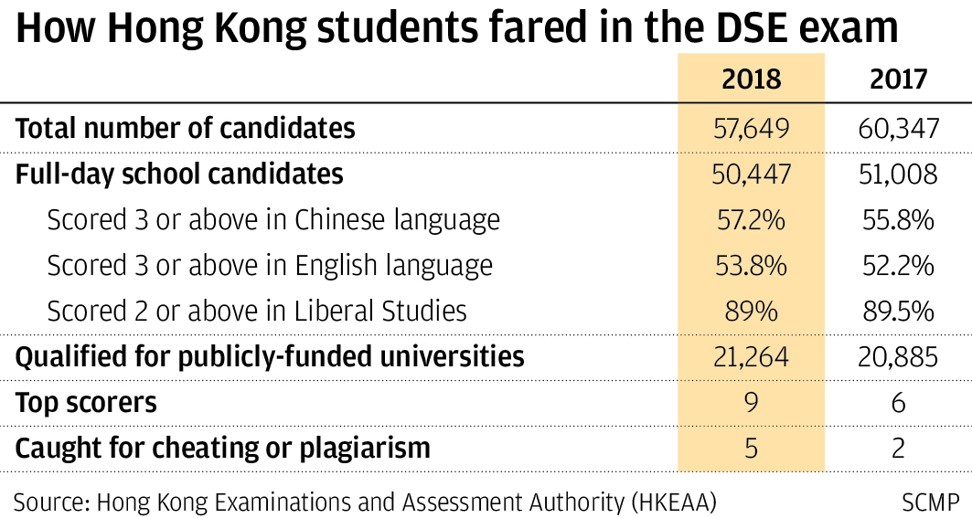
How university admission can be revamped to make Hong Kong more competitive
The “3322” requirement, according to which students must score a level 3 in both Chinese and English language and a level 2 in mathematics and liberal studies, is dashing the hopes of many talented youngsters, especially those skilled in the STEM subjects (science, technology, engineering and mathematics).
The idea behind the “3322” requirement is to ensure that the overall academic performance of Diploma of Secondary Education students is balanced. However, this also puts students who excel in science, technology, engineering and other subjects at a disadvantage. Three of the four core subjects are language-based and two of them require students to score a minimum of level 3. Only around 50 per cent of all DSE takers make the cut.
It perplexes me as to why high school students who may not be planning to study languages further need to demonstrate such a high level of competence in Chinese or English.
Clearly, some universities are also thinking along these lines, as the Hong Kong University of Science and Technology has just announced that it would consider the applications of students who did not achieve the required score in one core subject, but scored five stars in their remaining subjects.
The Chinese University of Hong Kong had earlier said that it would consider students who scored at least a total of three stars in three STEM subjects even if they did not achieve the required scores in the core subjects.
Since 2012 when the DSE was first administered, we have faced the problem of students who are the best in their fields being denied a place at university for failing a subject that had no relevance to their future studies. There has been a net decrease in talented and competitive graduates entering the workforce. Meanwhile, students who excel in certain subjects are not given the opportunity to hone their skills.
What universities must do, and what Hong Kong desperately needs, is to set flexible admission policies. Universities need to set separate entry requirements based on the curriculum of each major. This is to ensure that the best people are not deprived of the chance to contribute to society.
Universities should not slam the door on students who specialise, nor should they blindly follow the unreasonable Jupas thresholds. A revamped entry policy will benefit talented individuals and Hong Kong as a whole.
Andy Lau, Tsuen Wan


